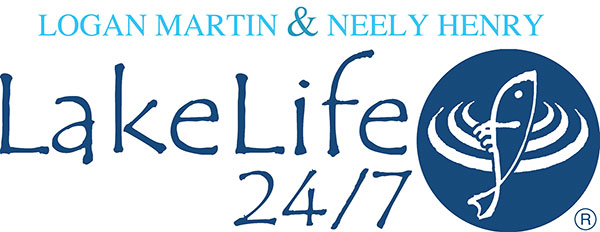Volunteering for Alabama paddle race gives writer chance to be eye witness
Story by Roxann Edsall
Photos by Rheagan Fann, Steve Edsall and Max Jolley
I was struck by the tenacity and grit of the paddlers. I saw these athletes, pushed to the brink of exhaustion and delirium, stumble from the water into the care of their ground crew.
Then a quick nap and meal later, I saw them, sunburned and blistered, but with a renewed determination, climb back into these vessels and face the water again. These men and women were paddling the Great Alabama 650.
When the call came out for volunteers to assist with this race, my interest was piqued. I live here, love the lake and enjoy kayaking. So how could it get any better than getting to support the Great Alabama 650 as the paddlers glide through the waters of Logan Martin Lake? So I signed up, but that’s just the beginning of my love story.
I loved learning the history of the race, but perhaps more importantly, the way it affords the local community a chance to participate, either by volunteering or by cheering on the racers from the shores.

Touted as the longest annual paddle race in the world, its 650 miles span the length of the state from Weiss Lake to Ft. Morgan in Mobile Bay.
I learned that it was conceived by the Alabama Scenic River Trails system as a way to promote the state’s navigable waterways. In its fourth year, the 2022 field was full at 20 boats, but only 11 started due to injuries and issues with Hurricane Ian.
One of the tandem teams had to drop out at Logan Martin Dam due to injuries. Their ground crew shared that it was a tough decision whether to continue or not. Ultimately, the injuries won out, and the kayak stayed atop the carrier until the team headed home. In that moment, though I didn’t even know this team, I felt their overwhelming disappointment.
I witnessed loving mothers, fathers and husbands crewing for their paddlers.
Tempers flared in moments of extreme stress and frustration. To be clear, the paddler is not the only one who is sleep-deprived. Their ground support crew does everything for the racer once they’re off the water. The crew may get some brief naps while the paddler is napping and after they’ve launched again, but they also must follow by land to meet them at the next stop.
A perfectly rehearsed ground-crew operation is a wonder to behold. I watched as a paddler reached shore at the takeout point and, out of nowhere, a crew that would rival a Talladega pit crew descended on the kayak. With barely a word, they went to work, each doing their own job efficiently.
Expertly assessing their racer’s physical status and fatigue level, they met the most urgent needs first, allowing the paddler to decompress so the mind and body could reset for the next leg of the race.
One of the first people I met when I started my 13-hour shift was Mirko Prufer, who flew in from Germany to crew for Frances Hiscox. He was taking down the tent she had used for her brief rest time when I had a moment to talk to him.
I was interested to learn that their roles were reversed from last year when she served as his ground crew. So, he took vacation time to do the same for her this year, adding that immersion in the culture is his favorite way to vacation. As he washed her race shirt in the lake, he shared his plans to kayak in a different race before heading back to Germany.

From the moment I put on my official T-shirt and became a “yellow shirt” volunteer, I was taken by the perseverance and dedication of the paddlers and ground crew, but also by the enthusiasm of the race staff and volunteers.
While there were many busy times for me as a volunteer, there were also many hours of getting to know my portage chief, Max Jolley. Max has been serving since the inception of the Alabama 650 race in 2019.
Race director Greg Wingo describes him as a “great guy,” adding that Max has the portage process down to a science. I would have to agree. He made the process of learning the ropes easy on a new volunteer.
Quick with a story, Max told me his favorite part of the experience was hearing the stories from paddlers and their ground crews. I wholeheartedly agree. Time sitting with Randi Evans (Ryan Gillikan’s mom) and Bryant Taylor (Gayle Taylor’s husband) around the table in the park after dark sharing family stories and kayaking adventures was a highlight for me as well.
Combining my love of kayaking, community, people and writing made my experience with the Great Alabama 650 a big win for me. And, yes, I will be back next year.
For more information on The Great Alabama 650, go to alabamascenicrivertrail.com.














